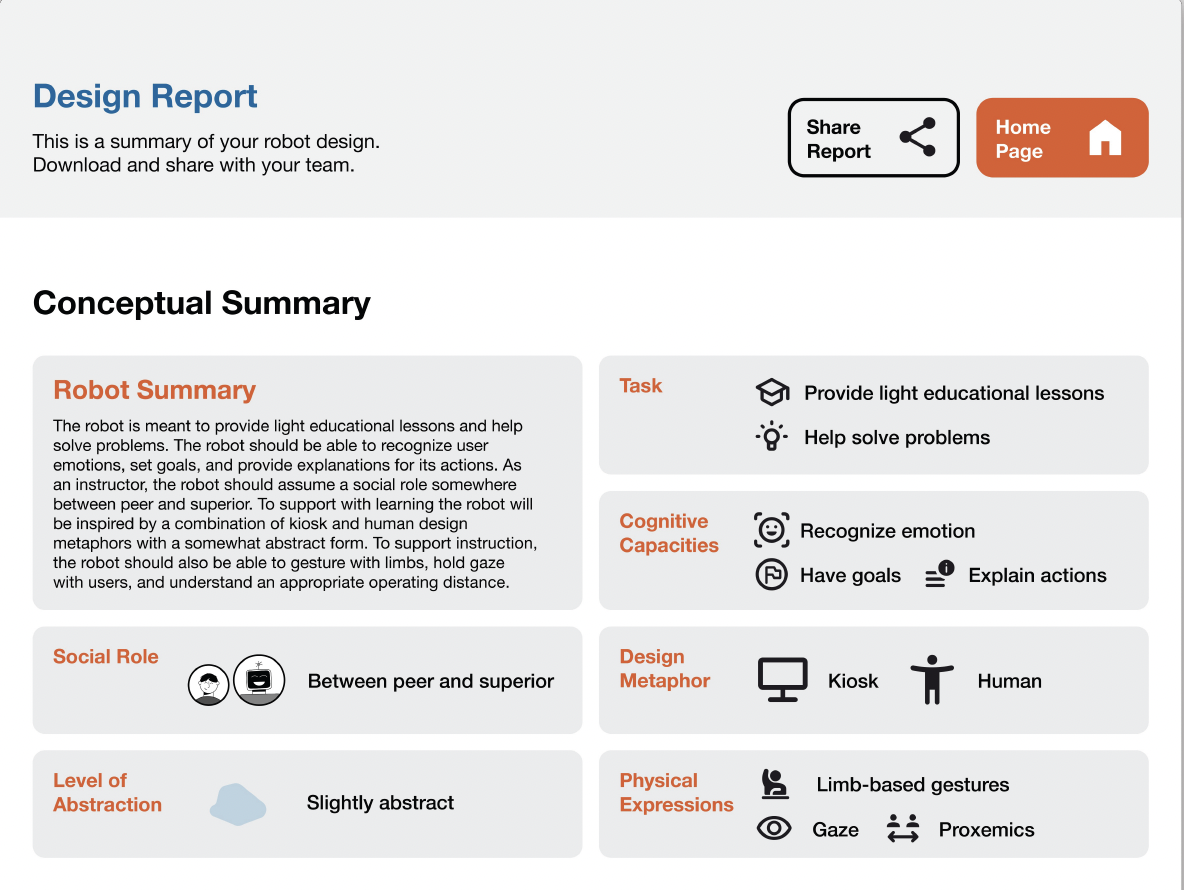Empowering Robot Designers: A Digital Tool for Early-Stage Social Robot Prototyping and Communication
by Adam Felts
Matt Milton, a former graduate student in human factors engineering at Tufts University and student researcher at the MIT AgeLab, presented a poster at the 2024 Conference on Human Factors in Computing Systems (CHI) in Honolulu, Hawaii, which discussed his efforts to improve the development of social robots.
Social robots may be useful as a tool of education, social companionship, and instrumental support for people of all ages, and particularly for older adults, who may require support to retain their independence and are more likely to be social isolated. However, the product category remains in its nascent stages, with open questions about the ideal design of social robots depending on its primary uses. Additionally, social robots are often designed by interdisciplinary teams with widely varying skills and vocabularies. To help foster more clarity on design principles for development teams, Milton developed an experimental digital tool for early-stage social robot prototyping and communication.
The tool provides an easy-to-use interface for interdisciplinary teams to create a prototype robot design, explicitly identify what uses the product will be intended for, and receive an overall conceptual and visual summary of their prototype to further development and conversation within a team.
Two industry experts were recruited to evaluate the tool. They noted that the tool allowed for the rapid generation of new concepts, its utility as an education tool on design decision-making, and its facilitation of interdisciplinary design.
The poster was co-authored by AgeLab researchers Shabnam FakhrHosseini, Chaiwoo Lee, and Jospeh Coughlin.
View a PDF of the poster here.

